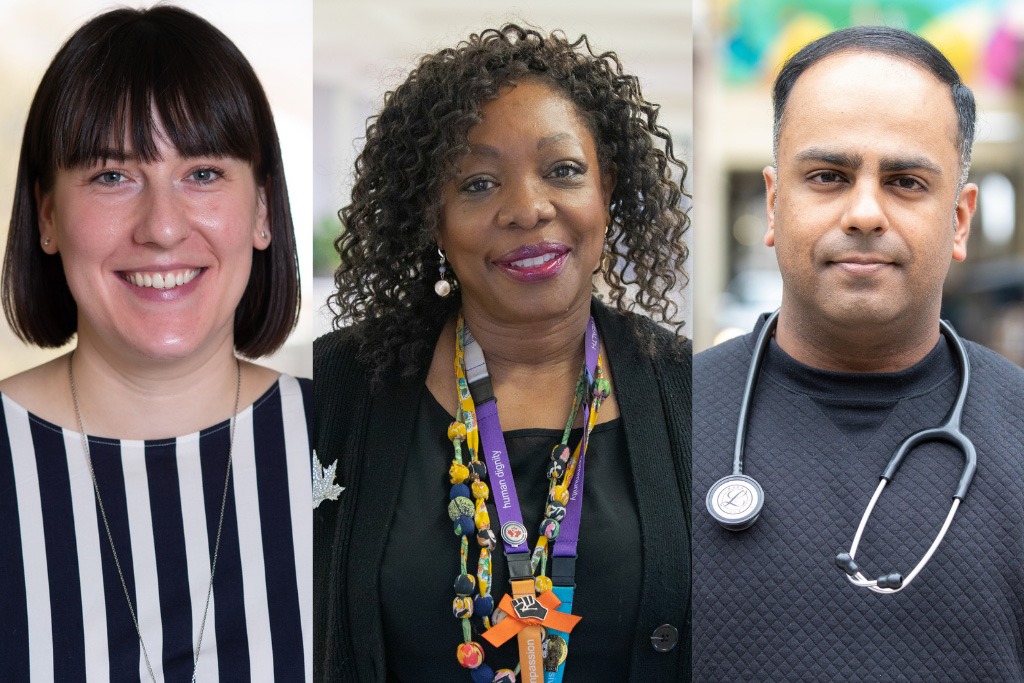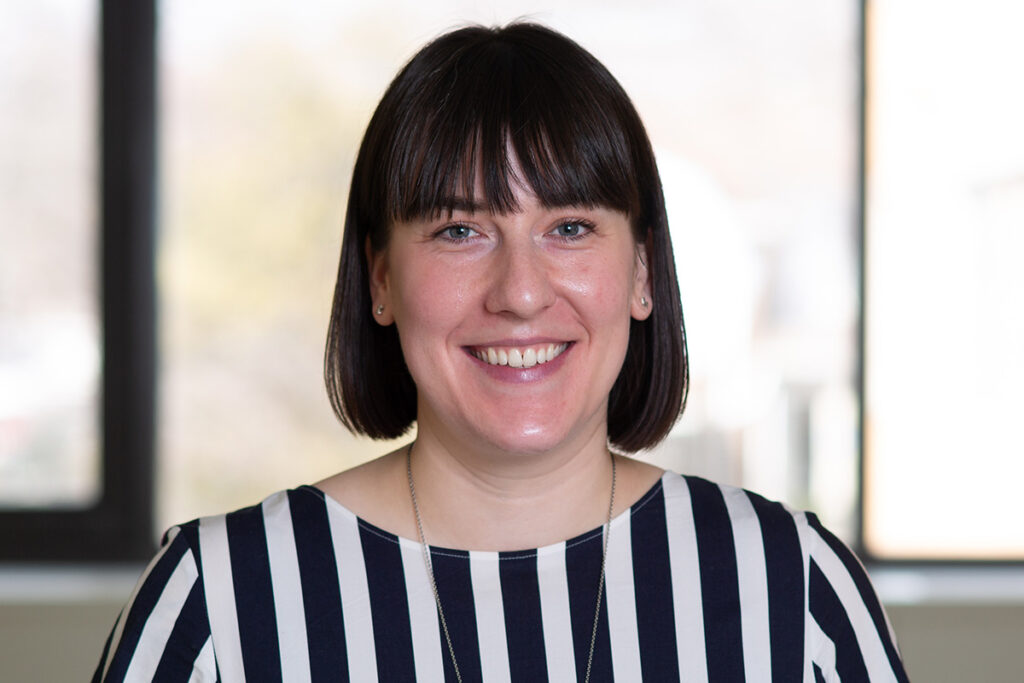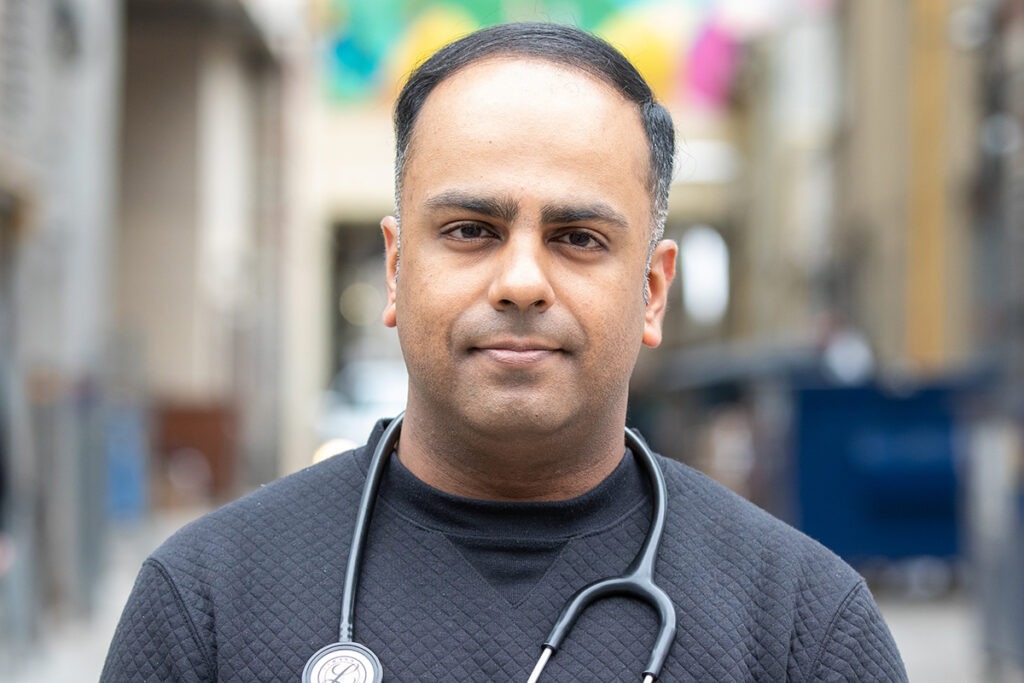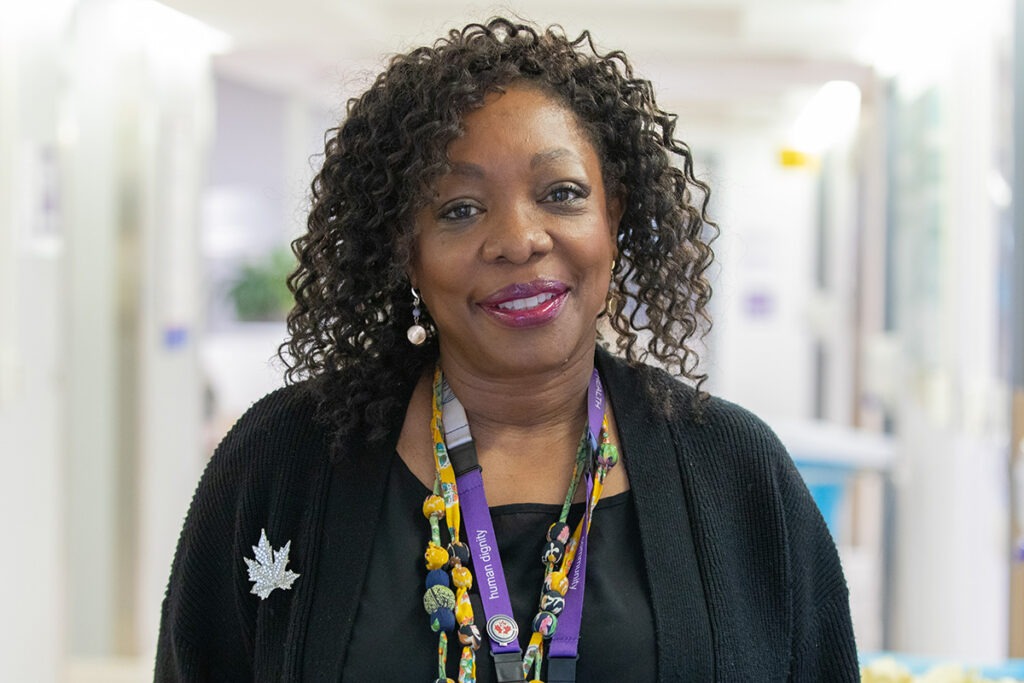‘It’s not about dying. It’s about living well’: Three palliative care providers reflect on their profession

COVID-19 has put conversations about life, illness and dying front and centre. In recognition of National Hospice Palliative Care Week, we spoke with Dr. Jennifer Hopfner, Dr. Naheed Dosani and Jacqueline Lumsden, who work in palliative care at Unity Health Toronto, about the changes they saw throughout the pandemic and where they hope palliative care goes from here.
Dr. Jennifer Hopfner is the division head for palliative care at St. Joseph’s Health Centre. Dr. Naheed Dosani is a palliative care physician at St. Michael’s Hospital. Jacqueline Lumsden is the patient care manager on the Palliative Care Unit at Providence Healthcare.
Q: What changes have you seen in the way illness and death are considered in palliative care since the start of the pandemic?

Dr. Hopfner: In the first wave I saw this real push to have advance care planning discussions. With such uncertainty of how COVID would impact individuals’ health and with so much death, specifically from COVID, there seemed to be a real push for individuals to discuss with their families, with their primary care providers, and with specialists, what they would like to happen if they were to catch COVID and become critically ill. It was a positive development, because advance care planning can be greatly empowering for people. Knowing that you have a life-limiting illness and that you’re going to die, and having a discussion about what that journey is going to look like ensures that individuals can have a voice at the table.
It was great to see advance care planning at the forefront, but it was so hyper-focused on COVID outcomes. I personally haven’t seen it translate into planning for other diseases that may have just as high or higher mortality risk.
What I also noted throughout the pandemic is how important community is during living, dying, grieving and mourning. I think I’ve always known that, but it was really highlighted during the pandemic, when patients suddenly couldn’t have access to community like they would typically have in times of grief.

Dr. Dosani: Since the start of COVID-19, I’ve seen a drastic change in the way that people are dealing with their illness journeys. During the pandemic, more and more people have been put in a situation where they have had to think about their own mortality and the mortality of the people they love. This has led to more people discovering the importance of palliative care and particularly, how a palliative approach to care is so essential for so many in our communities. Throughout the pandemic, our palliative care services were asked to see more people than ever before. We weren’t just managing people medically to support their quality of life, but we were supporting them emotionally and psychologically. In many cases, people didn’t always have loved ones at their side, so we were doing a lot of this care and support virtually and over the phone. Truly, there’s never been another time that I’m aware of where palliative care has been more essential.
I also saw the ways in which the COVID-19 pandemic disproportionately impacted certain people more than others. We saw first-hand, that people who experienced structural vulnerabilities were hit hardest. This included the elderly, people with disabilities, immunocompromised people and people experiencing homelessness and poverty. In addition, it became commonplace for our team to provide palliative care for people, for example essential workers, who perhaps wouldn’t even need this kind of care, if there were more upstream policies in place to protect them throughout the pandemic, such as paid sick days, equitable access to vaccines and more robust education to address COVID-19 misinformation.

Jacqueline: I think there are a few things I witnessed and learned throughout the pandemic. The first was how quickly my team came together to support patients and families as visitation restrictions were implemented. We came together and found ways to arrange virtual visits using iPads, because we knew how important visitation is for families. I also huddled frequently with staff and we talked about dealing with people who are frustrated and upset when they came in. We learned to tease out when someone was upset at an employee and when they were upset at the situation. Nine times out of 10, it was the situation. We learned to de-escalate difficult situations, and we stayed connected with our spiritual care leaders to provide support. Everyone pitched in to help. Patient-centred care is a phrase we often use, but I really saw it in action. I learned that anything is possible, and “no” is never a solution or an answer. The pandemic taught us that there are always options, so let’s try to explore those options to provide the best care possible.
Q: If there was one thing you could change about palliative care going forward, what would it be?
Jacqueline: I would love to see studies and input from patients that have different values and belief systems, and taking that information and incorporating it into our practice. Palliative care is unique to each individual, but I think palliative care is somewhat one-dimensional at the moment. I believe that our practice should be inclusive, and I think we need to take a step back and really revisit palliative care and what that means from an equity, diversity and inclusion lens for Black and Indigenous communities and People of Color (BIPOC).
Dr. Hopfner: I would like to see the building of capacity to provide more palliative and end-of-life care, not only by healthcare providers, but also by communities and people’s families and chosen families. I think there’s this misconception that palliative care can only be practiced by specialists in healthcare environments. I’d like to take a step back and see everyone practice good palliative and end-of-life care in all environments. I hope to see palliative care practiced more widely across Canada, and individuals feeling that they have the appropriate tools to do so.
Q: What’s one thing you would like every Canadian to know about palliative care?
Dr. Hopfner: I would like to shatter the myth that palliative care is synonymous with end-of-life care. End-of-life care is a branch of palliative care, but palliative care encompasses much more. It can be introduced earlier on in a patient’s disease trajectory to help alleviate symptoms and improve quality of life. I would like people to understand this so they aren’t as fearful about meeting our team or to have a conversation about palliative care.
Jacqueline: Palliative care is no longer an end destination. For a long time there’s been a misconception that people come to palliative care to die. I think it’s great that we’re now seeing patients who stabilize and have the option of returning home or to another alternate location that would meet the individual’s care needs. We have many patients who come to palliative care and return home or go on to long term care, thanks to the care they receive here.
Dr. Dosani: I would want everyone in Canada to know that palliative care doesn’t have to start at the end of life. Early palliative care has been shown to have great benefits for people dealing with serious illnesses, including improved symptom management and emotional wellbeing. As well, caregivers often feel very relieved to have early access to the kind of support that palliative care has to offer. This can include medical care, but also home and community care.
I’ve learned through palliative care that even if people are very sick, they can live well. Palliative care can offer hope through an approach to care that can really improve a person’s quality-of-life. While end-of-life care is certainly a part of the continuum of what palliative care can offer, palliative care is not about dying. Palliative care is about living well.
By: Marlene Leung
